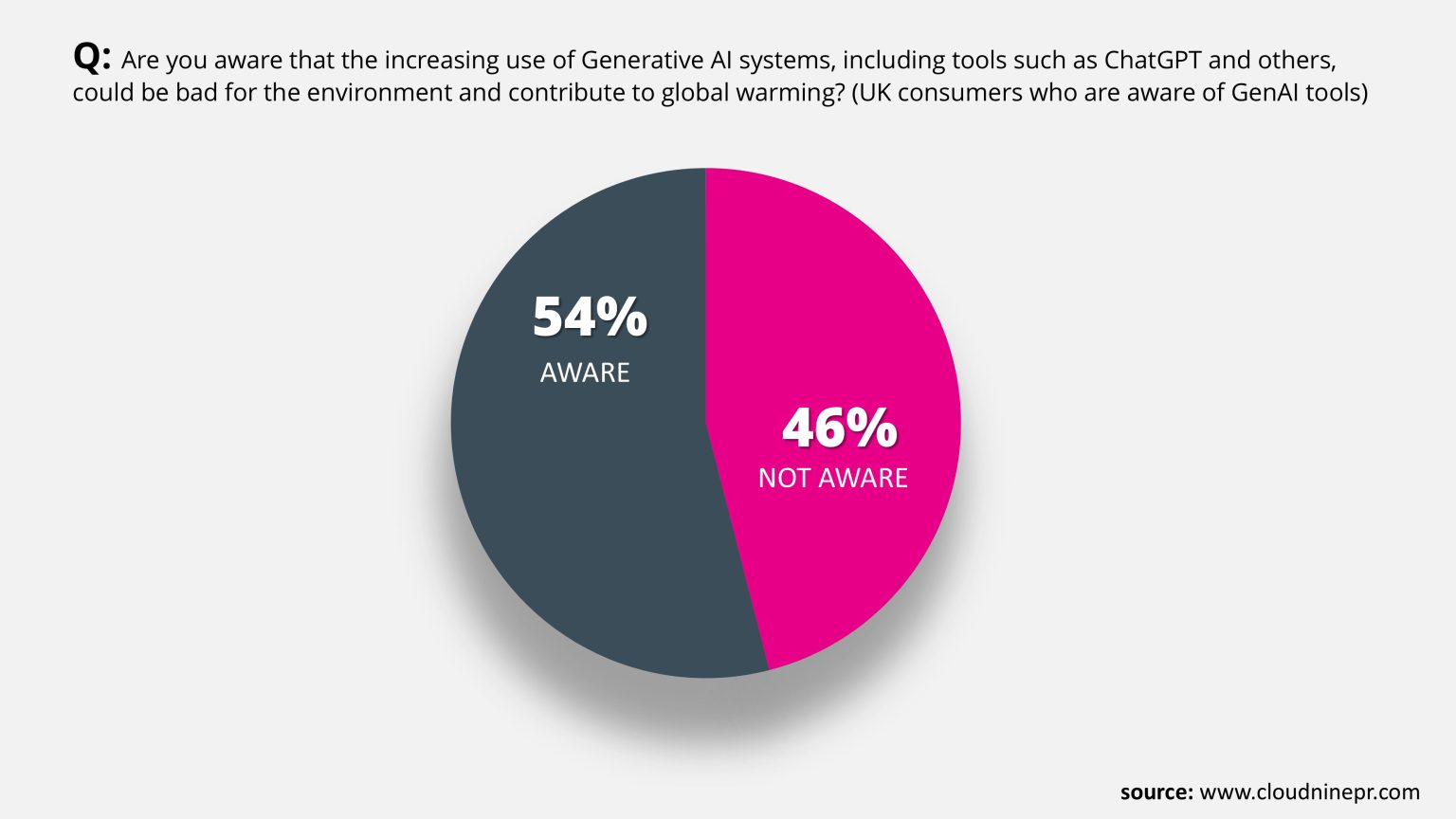Growing Awareness of Generative AI
A recent survey reveals that awareness of Generative AI (GenAI) tools, including ChatGPT, Microsoft CoPilot, and Google Gemini, has reached 83% among adults in the UK. Despite this widespread awareness, there is a growing call for transparency regarding the environmental impact of these technologies. Notably, 45% of respondents desire legislation requiring companies to disclose the environmental and climate change implications of their GenAI systems.
Environmental Concerns on the Rise
The increase in environmental concerns stems from the fact that GenAI systems heavily depend on data centres, which predominantly operate on fossil fuels, thereby exacerbating carbon emissions. Conducted by technology PR company CloudNine PR, the survey of 1,000 UK consumers indicates that 54% of adults familiar with GenAI acknowledge that its growth may pose threats to the environment and contribute to global warming. Alarmingly, nearly 19% express distrust in GenAI providers, fearing they may not manage their environmental impact responsibly.
Willingness to Pay for Sustainability
Furthermore, approximately 10% of regular GenAI users stated they would be willing to pay more for products and services that utilise GenAI technology, provided the extra funds are allocated towards enhancing energy efficiency and sustainability.
The Energy Demands of GenAI
The energy-intensive nature of GenAI technology raises significant concerns, as its rapid adoption increases the demand for power-hungry data centres. Research by Morgan Stanley predicts that the energy consumption driven by Generative AI will increase by 70% each year until 2027, highlighting the urgent need for expanded data centre capacity. By 2027, it’s estimated that the energy consumption of Generative AI could match the total energy needs of Spain in 2022.
GenAI systems draw vast amounts of electricity from the numerous computer servers in data centres that support them. This electricity is consumed during both the training of large language models (LLMs) and the processing of user queries or tasks. For instance, processing a single request via GenAI tools like ChatGPT is estimated to consume around 10 times more electricity than executing a simple Google search. Replacing the 9 billion daily Google searches with GenAI requests could potentially increase electricity demand to a level comparable to the annual consumption of approximately 1.5 million EU residents.
The Need for Action
However, the anticipated rise in energy consumption and the associated environmental costs of GenAI could be mitigated if the technology industry and regulators take action. Signs of progress are already emerging. Major tech companies, including Salesforce, are backing legislation that would mandate standardised methods for measuring and reporting the carbon emissions and environmental effects of AI systems.
In February, US Democratic lawmakers introduced the Artificial Intelligence Environmental Impacts Act of 2024, which aims to establish consensus on standards to assess and report the complete environmental impacts of AI while also creating a voluntary framework for AI developers to disclose their impacts.
A Call for Sustainable Practices
Legislation of this nature could further motivate major tech brands and data centre operators to adopt the advice of experts, who suggest feasible strategies for reducing the carbon footprint of AI, such as investing in energy-efficient servers, employing environmentally-friendly cooling methods in data centres, and transitioning to renewable energy sources.
“Generative AI has immense potential to enhance our lives, but there is an urgent need to make it sustainable before it spirals out of control,” remarked Uday Radia, owner of CloudNine PR. Our survey shows that consumers are becoming increasingly aware of this challenge. While individual user actions may seem trivial, more than 35% of those acquainted with GenAI believe it would be beneficial if tools like ChatGPT reminded users of their environmental impact each time they logged in, thereby promoting more responsible usage.
